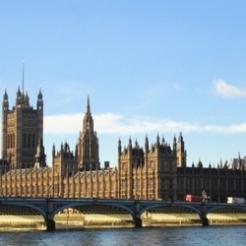Major charities have ended several relationships with fundraising agencies and cut spending on telephone fundraising as a result of concerns raised in the media, a Parliamentary committee heard yesterday.
The chairs of Oxfam, NSPCC and RSPCA gave evidence before the Public Administration and Constitutional Affairs Committee, which scrutinises charity regulation and has opened an inquiry into fundraising as a result of recent media scrutiny.
“We’ve let the general public down,” said Karen Brown, chair of Oxfam. “Those who’ve worked in our name have acted in ways that are simply unacceptable. We do have monitoring procedures, but they weren’t adequate to the task.”
She said Oxfam had “ended our relationship” with Listen, one of the fundraising agencies it had used, while the other, GoGen, had gone out of business.
She said that in the past Oxfam had spent £3.5m “but that will now drop very considerably”.
Mark Wood, chair of the NSPCC, said: “We’ve become concerned in some cases about the approach which these organisations take to fulfilling their duties on our behalf. We’ve identified two cases where we’ve had very explicit breaches of contract and suspended our contracts with those entities.”
Daphne Harris, chair of the RSPCA, said her organisation had continued to work with Listen but had tightened its rules on data, and had stopped swapping data with other charities.
Chairs also said that trustee boards had not had sufficient oversight of fundraising activities, particularly those carried out by agencies, and that they had increased the level of scrutiny.
Bernard Jenkin, Conservative MP for Harwich, said Charity Commission guidance required trustees to make sure their charities followed the law on fundraising, and questioned whether they had done so.
He said trustees “were blind to what happened on your watch”.
The three chairs said they did not accept Sir Stuart Etherington’s criticism that they had too often “been absent” from conversations about fundraising, but admitted there had not been sufficient care taken.
“We apologise here unreservedly,” said. “The truth is we didn’t know.”
Harris and Wood both said that fundraising committees would have a much higher profile than before, with similar status to the audit committee.
“A fundraising committee with the same status as the audit committee and the finance committee is a vital component of good governance,” Wood said.
Brown said she will “never feel confident” that abuse of vulnerable donors is not taking place. She said the system will have to be “as good in five years’ time as it is now”.
Brown said that the board had now “put fundraising on the same footing as health and safety” and would have annual checks. She said Oxfam had appointed a compliance officer to ensure that it followed the rules.
All three charities backed the changes to fundraising regulation proposed by Sir Stuart Etherington, and said they would be happy if those changes were “beefed up” further. However they said they were in favour of self-regulation. They said effective sanctions should be in place.










